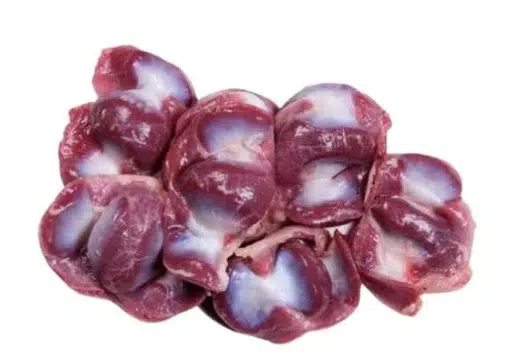Introduction: Duck Gizzard – A Nutritious Treat for Your Dog
When it comes to our dogs, we all want the best for them, especially regarding their diet. Duck gizzard, a lesser-known yet nutritious treat, can be an excellent addition to your dog’s meals. Let’s explore the benefits and precautions of feeding duck gizzard to your dogs.
What Exactly Is a Duck Gizzard?
A gizzard is part of a bird’s stomach that aids in the digestion process. It’s a muscular, thick-walled organ where hard foods are ground up. Despite its tough texture, when cooked properly, duck gizzard can provide a tasty and healthy treat for your pet.
The Nutritional Value of Duck Gizzard
- Protein-Rich: Duck gizzards are high in protein, which is essential for your dog’s muscle development and overall growth.
- Low in Fat: They’re lower in fat compared to other meats, making them a good choice for dogs on a diet.
- Rich in Vitamins and Minerals: Duck gizzards contain essential nutrients such as iron, phosphorus, zinc, and vitamins B12 and A that support your pet’s immune system and overall health.
How to Prepare Duck Gizzard for Your Dog
To ensure the safety and health of your dog, it’s important to prepare the duck gizzard properly. Raw gizzard can carry bacteria like Salmonella, so it’s best to cook it thoroughly before serving. Here are some simple steps:
- Clean the gizzards thoroughly under running water.
- Boil them for about 15 minutes or until fully cooked.
- Cut into bite-sized pieces suitable for your dog’s size.
- Serve them plain or mix them into your dog’s regular food.
Precautions When Feeding Duck Gizzard to Your Dog
While duck gizzards can offer many benefits, there are a few things to keep in mind:
- Moderation is key: Even though duck gizzards are nutritious, they shouldn’t replace a balanced diet. Treat them as an occasional supplement to your dog’s diet.
- Watch for allergies: Some dogs may have poultry allergies. If you notice any adverse reactions like skin irritation or digestive issues, stop feeding duck gizzard and consult your vet.
- Avoid seasonings: Seasonings like onion, garlic, and salt that we humans enjoy can be harmful to dogs. Always serve the gizzard plain.
Including Duck Gizzard in Your Dog’s Diet
Incorporating duck gizzard into your dog’s meals can be done in several ways. Some pet owners prefer to mix gizzards in with traditional
dogs’ diets, providing a varied texture and flavour to the meal. Others might choose to serve it separately as a special treat or reward. Remember, moderation is vital, and duck gizzards should not make up more than 10% of your dog’s overall diet. Read about
cat’s claw for dogs’ diet.
Purchasing and Storing Duck Gizzard
Duck gizzards are commonly available in most supermarkets or butcher shops. When purchasing, look for gizzards that are firm and have a fresh smell. Avoid any that look discoloured or have a strong, unpleasant odour.
For storage, gizzards can be kept in the refrigerator for up to two days. If you plan to use them later, it’s best to freeze them. Frozen gizzards can last up to four months. Always remember to fully defrost and cook the gizzard before serving it to your pet.
The Bottom Line
Duck gizzard is a nutritious and appealing treat that can provide your dog with essential proteins and nutrients. Remember to cook it thoroughly and serve it in moderation, and as always, keep a close eye on your pet for any signs of food allergies or intolerances. If in doubt, always consult with your vet before introducing new foods into your pet’s diet.
In conclusion, a diet enriched with treats like duck gizzard can enhance your pet’s meals, provide nutritional benefits, and offer a tasty change of pace that your dog is sure to love. Be sure to introduce it gradually and monitor your pet’s reaction. Happy feeding!
